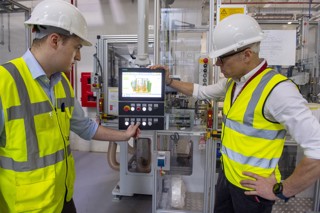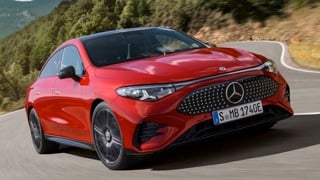In May and June, Fleet News surveyed all the major manufacturers to find out how they were responding to the coronavirus pandemic, how they are supporting their fleets customers and their views on the type of impact it would have on the fleet sector.
The resulting article was published in the June edition of Fleet News.
Here is Ford's response.
Fleet News spoke to Neil Wilson, Ford fleet director (answers as at 14/5/20)
Watch the video interview:
Mobile servicing has become a major part of the aftersales service Ford is offering its fleet customers to keep their vehicles on the road during the Covid-19 crisis.
With around half the network remaining open for service, maintenance and repair (SMR) work, primarily for essential fleets, additional capacity has been absorbed by the fleet of mobile vans.
“Throughout the crisis our fleet business centre remained open and our Ford Service Centre was also fully operational,” said Neil Wilson, fleet director, Ford of Britain. “We’ve also utilised our dealer network on mobile service vans and parts distribution to keep things running as smoothly as possible.
“The mobile service vans have proven to be invaluable to us and have been fully utilised throughout the crisis. We’ve been able to go to customers on site and service and maintain their vehicles, and we look to expand on that through the balance of the year.”
Ford has been proactive in ensuring customers always have access to one of its dealers, sometimes moving vehicles from a closed site to an open workshop to enabled work to be carried out.
“In some cases, where parts have been less available in a shorter timeframe, we have cannibalised vehicles to provide donor parts to get those vehicles back on the road,” Wilson added.
Following Government guidance, Ford started to move towards 100% network coverage midway through May.
“Our dealer network has been delivering through the crisis where it can to essential workers. We are starting to deliver now to people outside of that group,” Wilson said. “Dealers are now commencing click and collect type arrangements, and we have lots of vehicles that were ready to go in March and April which we are now in a position to deliver or make arrangement for them to come and pick up. And in the vast majority, those customers still want those units.”
Ford has implemented new protocols, including personal protective equipment (PPE), social distancing, sanitising the vehicles and contactless payments and document signatures.
“Electronic signatures are actually approving things faster for customers in order to get business moving,” Wilson said.
Video conferencing will continue to play an important role in communications and could potentially become even more widely adopted in the future, replacing face-to-face meetings in many instances.
“I still think face-to-face meetings are really important in fleet and that will still happen. We have our own protocols in place that we have developed, and our customers have their own protocols, so we have to make sure we are both aligned.”
Wilson pointed to Ford’s experiences in other countries as evidence of how quickly confidence might return to the UK market. Its operations in China have “come back very quickly and exceeded our expectations” and Ford is already achieving its sales and production plans close to its targets set prior to the coronavirus pandemic.
Italy and Spain are also showing similarly strong signs of recovery and Wilson is hopeful the UK will show a V-shaped upturn, a viewed shared by many of the fleets he is speaking to.
“We need to make sure we are ready to ramp up to meet that demand,” he added. “There are green shoots across the board and conversations with customers have been largely positive.
“The used car market has just started to open up again. Values are good and if that remains in place, companies will be able to refresh their fleets and get back to normal as fast as possible.”






















Login to comment
Comments
No comments have been made yet.